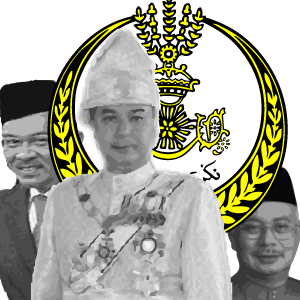Norwegian roads and swing voters February 24, 2009
Posted by Sverre in : Norwegian politics, Political economy, Public Policy , comments closed In recent weeks, there has been som controversy in Norwegian media over an article by Leif Helland and Rune J. Sørensen of the Norwegian School of Management (BI) about a systemic skew in Norwegian road building. Their research shows that there appears to be systematic self-serving rational choice behavior by Norwegian politicians, as districts with important swing voters tend to get more grants for road building, and that this affects the social efficiency of road building in general. Read the article (link at the bottom) for more on their findings.
In recent weeks, there has been som controversy in Norwegian media over an article by Leif Helland and Rune J. Sørensen of the Norwegian School of Management (BI) about a systemic skew in Norwegian road building. Their research shows that there appears to be systematic self-serving rational choice behavior by Norwegian politicians, as districts with important swing voters tend to get more grants for road building, and that this affects the social efficiency of road building in general. Read the article (link at the bottom) for more on their findings.
This was picked up by Norwegian media when Norwegian parliamentarians met with Swedish counterparts and presented under the heading “Met by laughter in Sweden”. What the Swedes were laughing at was the level of micromanagement in road building that the Norwegian parliament is involved in. In Norway, every road builiding project is a parliament issue, and Helland and Sørensen have proved that this leads to non-optimal distributions of road construction money.
Norwegian Secretary of Transportation Liv Signe Navarsete doesn’t get the most important point:
The finance crisis animated February 23, 2009
Posted by Sverre in : Political economy , comments closedArt student Jonathan Jarvis has made a brilliant graphic animation explaining the credit crisis in detail in the most simple and easy to understand way I have yet to see. This 11 minute video really nails the important basics and is just what you need for someone who struggles with understanding the who’s and why’s of the crisis. You can watch the YouTube version (in 2 parts) below, or go to http://crisisofcredit.com for the nicer HD version.
[youtube=http://www.youtube.com/watch?v=Q0zEXdDO5JU]
Podcast review: Econtalk February 22, 2009
Posted by Sverre in : Political economy, Reviews , comments closed In my quest to find good political science podcasts out there, I’ve now arrvied at the Library of Liberty and Economics‘ podcast series “Econtalk“. Like the previously reviewed LSE lectures, it’s a well established line with a lot of material from interesting speakers. There’s a lot of good material in there, although the style differs much from the lecture style of the LSE cast.
In my quest to find good political science podcasts out there, I’ve now arrvied at the Library of Liberty and Economics‘ podcast series “Econtalk“. Like the previously reviewed LSE lectures, it’s a well established line with a lot of material from interesting speakers. There’s a lot of good material in there, although the style differs much from the lecture style of the LSE cast.
Econtalk is, like its name implies, talking on economics and related spheres – mostly political economy. If you regard the more policy-related parts of economics as being within the interest sphere of political science, there is an abundance of good material here. (more…)
Podcast Review: LSE Public Lectures February 11, 2009
Posted by Sverre in : Reviews , comments closed As promised, I’ll be reviewing some of the political science relevant podcasts out there, starting with the London School of Economics’ Public Lectures and Events stream.
As promised, I’ll be reviewing some of the political science relevant podcasts out there, starting with the London School of Economics’ Public Lectures and Events stream.
Let me start with loudly acclaiming the very thought of recording lectures and making them available to everyone over the internet. It’s part of the whole idea of open access to scientific material and knowledge that I happily notice seems to be gaining more ground. The LSE is a prestigious institution in an international metropolis, allowing it to attract names for guest lectures that I could only dream of here in my small Norwegian city. That’s why it’s so fantastic that I can still gain access to these lectures from some of the most brilliant minds of the world through the internet.
So, one point already to the LSE just for the effort. But what have they actually put out there? All lectures generally follow the same format. First there are one or more speeches by prominent scientists or society persons followed by a Q&A session with the members of the audience. They are conducted in an orderly manner with one of the LSE academic staff as moderator. (more…)
Perak, Malaysia – a constitutional monarchy gone haywire February 7, 2009
Posted by Sverre in : Malaysia , comments closed An interesting political conflict is taking place in the state of Perak in Malaysia these days. Things have turned into complete chaos with a government that won’t resign, a monarch that won’t dissolve the parliament and two political alliances trying to steal each other’s representatives with all means necessary. All claim to have the constitution on their side and accuse the others of acting unconstitutionally.
An interesting political conflict is taking place in the state of Perak in Malaysia these days. Things have turned into complete chaos with a government that won’t resign, a monarch that won’t dissolve the parliament and two political alliances trying to steal each other’s representatives with all means necessary. All claim to have the constitution on their side and accuse the others of acting unconstitutionally.
After the 2008 elections, the state parliament is divided almost 50-50 between the opposition alliance PKR and the government alliance BN. Until now, the state had a PKR government who ruled with a 3-member advantage in the parliament. So far pretty straightforward, but then it becomes complicated… (more…)
Political science podcasting February 5, 2009
Posted by Sverre in : meta, Reviews , comments closedI’ve just used some of my research scholarship money to invest in a media player that I will use for recording purposes. But more than just record stuff like a dictaphone, I can also use it to play other media. Like podcasts.
I’ve never really had a player well suited to listening to podcasts before, but over the last two days I’ve been trying it out. And I was excited to find out how wonderful a tool this can be for those of us that have a somewhat more than average interest in political science. Now I can have political science lectures in debates in my ears all the time rather than just getting it in snippets on BBC or Norwegian broadcasting whenever they send something interesting. Now I can really cater to my nerdiness and be a political scientist even when out walking or skiing!
Henceforth, I will try to spread the gospel of political science podcasts through reviewing and recommending good podcast sources for political scientists from time to time. I’m currently trying out the podcasts from LSE, which show some real promise. A review will follow after I’ve listened through a couple of broadcasts and made up an opinion.
The crisis game – poker or chicken? February 1, 2009
Posted by Sverre in : Norwegian politics, Political economy , comments closed Norwegian newspaper Aftenposten had an interesting report before the weekend about the games surrounding the Norwegian government relief packages. They compare the gam
Norwegian newspaper Aftenposten had an interesting report before the weekend about the games surrounding the Norwegian government relief packages. They compare the gam e now played between the government and the banks. On one side of the table we have Prime Minister Jens Stoltenberg (Labour), and on the other we have the major bank managers, represented by Nordea CEO Gunn Wærsted. Each has three visible cards: a 7, Jack and Ace. The analogy might not be brilliant and ingenious, but it describes the game in a simillar manner to the game theories of Political Economy. (more…)
e now played between the government and the banks. On one side of the table we have Prime Minister Jens Stoltenberg (Labour), and on the other we have the major bank managers, represented by Nordea CEO Gunn Wærsted. Each has three visible cards: a 7, Jack and Ace. The analogy might not be brilliant and ingenious, but it describes the game in a simillar manner to the game theories of Political Economy. (more…)